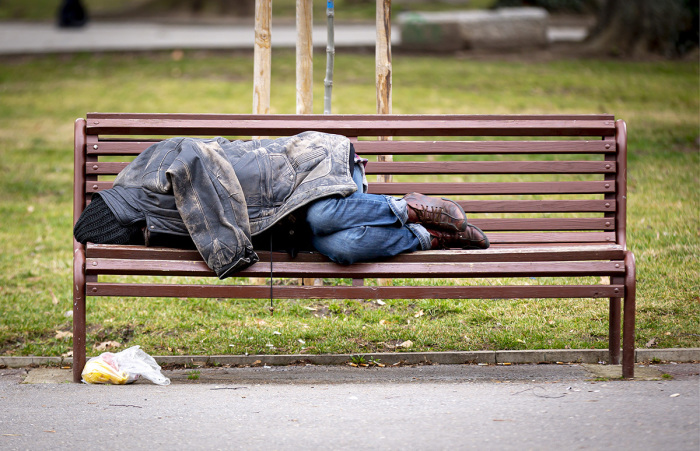
Toms River’s council has begun proceedings to forcibly acquire Christ Episcopal Church’s 11‑acre campus for “public use” at a time when the 160‑year‑old parish is seeking permission to open a 17‑bed shelter for the homeless.
During a contentious April 30 meeting, the council voted 4–3 to move forward with a plan that would let the town purchase the church and five other properties — or take them by force if the owners refuse to sell — to build two new public parks, the Episcopal News Service reported.
Mayor Daniel Rodrick, an outspoken critic of homelessness in the seaside community, was quoted as saying he wants pickleball courts, a soccer field, a playground and a skate park on the church grounds.
Christ Church learned of the ordinance only hours before the vote.
“It’s just really shocking and surprising and very disappointing,” the Rev. Lisa A. Hoffman, the rector, was quoted as saying. Hoffman added that no official had notified the congregation in advance. She said she doesn’t regard a new park as a “legitimate reason to seize the property.”
The proposal arrives while the parish seeks a zoning‑board green light for an overnight shelter. That board is slated to vote on May 22. Six days later, on May 28, the council will hold a public hearing and could adopt the land‑seizure ordinance.
Attorney Michael York, retained by a local affordable‑housing group to represent the church, hand‑delivered a letter moments before the council session.
“It is clear and obvious that the township and mayor are acting in bad faith and have ulterior motives,” he wrote, calling the ordinance “an excuse to obtain property” and warning of litigation against any official “who knowingly participated in this bad faith action.”
York said even a cursory review of case law shows the township in a “perilous position.”
Under the Episcopal Church’s Dennis Canon, parish property is held in trust for the diocese and the national church, a factor that could further complicate any condemnation attempt.
Debate on the dais reportedly lasted six minutes but erupted in raised voices.
Council member Thomas Nivison tried to table the measure or remove the church from consideration; his effort fell short 4‑3, the same margin that immediately advanced the ordinance.
James Quinlisk, voting no, told the chamber, “There’s no way on God’s green Earth that anyone should vote for this ordinance,” drawing loud applause. At one flash point, a member accused a colleague of hating God, Christ, homeless people and humanity.
David Ciccozzi cast his no vote standing and led the room in the Lord’s Prayer.
Several residents who said they had experienced homelessness recounted sleeping in cars and struggling with addiction, then credited churches for help.
Angie Feldman warned the council that “when you start messing with his children, you’ve got a lot of trouble.” Will Wiencke, a lifelong parishioner, said he wonders daily how to ease homelessness and predicted the church would outlast current officials.
In addition to drawing more than 150 congregants each Sunday, Christ Church hosts more than 20 support groups, operates a food pantry and runs a weekly clothing giveaway.
Ocean Christian Community rents an older chapel on the property, and the Affordable Housing Alliance has worked there for nearly two years, rehousing more than 130 families in its first year.
In February, a state appellate court in Bryan, Ohio, paused a lower court’s decision to fine and jail a pastor for keeping his church open around the clock to shelter the homeless. Pastor Chris Avell of Dad’s Place had been ordered by a municipal judge to pay $200 and received a suspended 60-day jail sentence for operating a 24/7 ministry.
The religious liberty law firm First Liberty Institute, which is representing the church, accused the city of unfairly targeting the congregation with late-night fire inspections, police pressure and zoning complaints while applying fire codes unevenly among establishments.

















